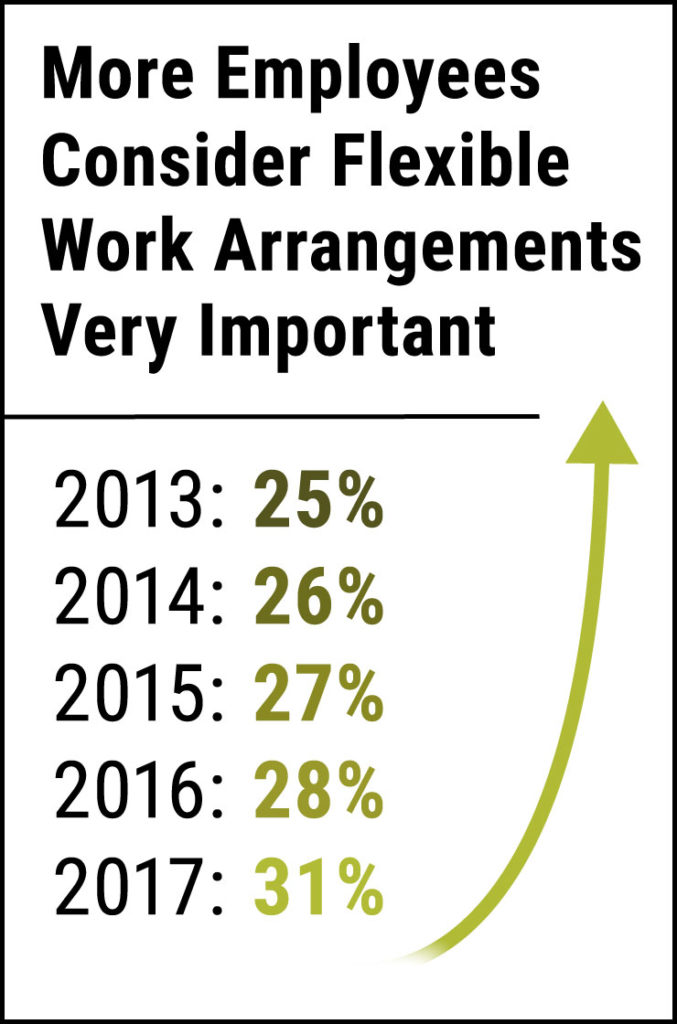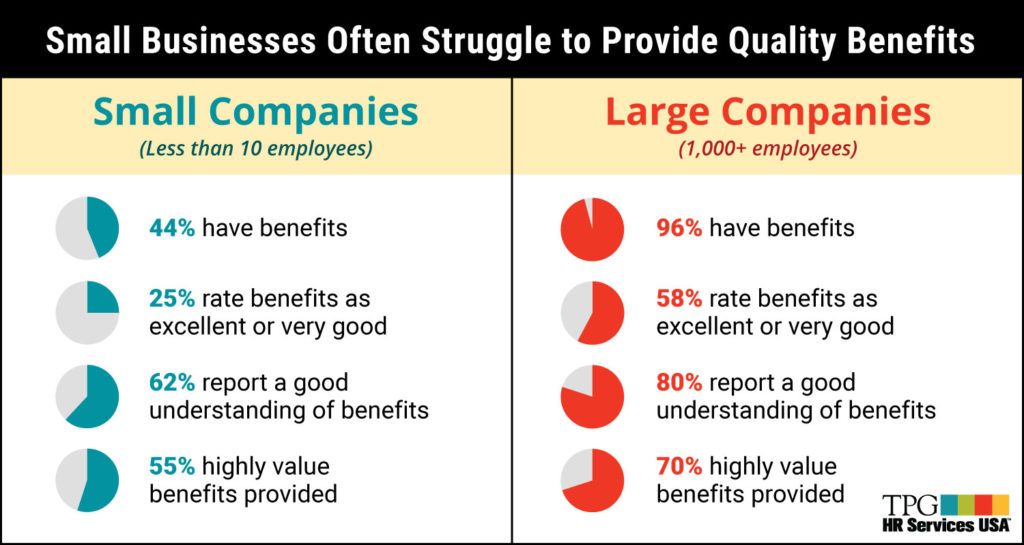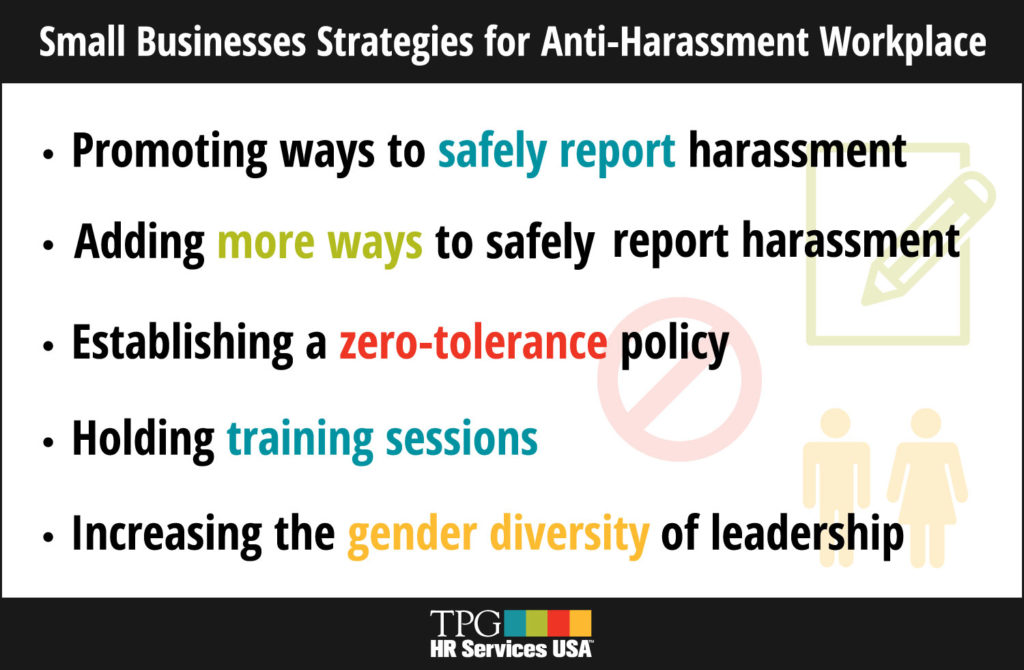
How Can Your Small Business Compete For Big Talent?

Ms. Pomerantz is the CEO of TPG HR Services USA and has over 35 years of Human Resources practices experience. She holds a Master’s in Human Resource Management (MHRM) and is a certified Senior Professional in Human Resources (SPHR) and SHRM Senior Certified Professional (SHRM-SCP). Mary also serves as CEO of Mary Pomerantz Advertising, one of the largest recruitment advertising agencies in the country. Earlier in her career, she was president of the 17th largest staffing firm in the country.

As the unemployment rate drops to historically low levels, competition for new employees keeps heating up, pitting every company against one another in a “war for talent.” Oftentimes, small businesses may feel like it is difficult to compete with their larger competitors who have more resources to put into recruiting and more money to compensate for their talent. So, this begs the question: “what can small businesses do to compete for big talent?”
Small Businesses Have Their Advantages
Not every professional enjoys just being one of the crowd and not having the opportunity to develop close working relationships with management and other employees. Some employees enjoy the tight-knit atmosphere commonly found in small businesses.
Let potential hires know about the impact they can have on your small company, as opposed to the peripheral affect they may have at a larger organization.
You Can Offer More Flexibility
Professionals are more commonly opting to take less money in favor of more flexibility. How much is it worth to be able to work from home every Friday, or even two days per week? The extended family time and extra comfort of being able to work remotely may be priceless to job hunters with families. Take advantage of your flexibility and use it as one of your business’s top-selling points. According to a recent LinkedIn study, employees are increasingly likely to rate flexible work arrangements as “very important” when they are considering a new job. As a small company, you can use this as an advantage when designing your rules on working from home, enabling you to attract employees who desire a bit more flexibility than some larger competitors might offer.

Beef Up Your Benefits
For businesses that want to attract the best talent, offering competitive benefits is a very important part of the equation. All employees – whether they’re single, married, young, or old – are concerned about their health and interested in benefits. However, this can be difficult for small businesses due to the costs and economies of scale when it comes to procuring benefits for your employees. Recent studies on this topic illustrate just how dramatic the divide can be between small and large companies when it comes to the benefits that they are able to provide to their employees. The following infographic highlights some of these challenges:

Recruiting for Soft Skills
In addition to work flexibility, LinkedIn has identified three other employment trends that are transforming the workplace. By staying in front of these trends, you can increase your “recruitment muscle” when competing against larger competitors for today’s top talent. The first of these trends is the increasing importance of “soft skills” in the recruitment process. As automation and artificial intelligence reshape entire industries, companies, and jobs – strong soft skills such as the ability to creatively solve problems and work effectively with others as part of a team are becoming more and more important in determining whether new employees will ultimately thrive in an organization over the long term.
In fact, 92% of talent professionals say soft skills matter as much or more than hard skills when they hire, and 80% say they’re increasingly important to company success. Unfortunately, many companies often struggle to assess these skills or determine which of these skills are critical within their organization. By identifying and actively recruiting for the soft skills that are relevant to your company, you can out-compete some of your competitors even as a relatively small company.
Strong Anti-Harassment Efforts Make Workplaces More Attractive
Although preventing sexual harassment has always been a moral and legal imperative for employers, recent research has shown that it is a business necessity as well. Hostile workplaces hurt your bottom line through legal costs, high employee turnover, and damage to your reputation and employer brand. This, in turn, makes it more difficult to recruit the best employees. However, the flip-side is also true; expending the time and effort into creating an actively anti-harassment environment can enhance your recruitment reach by building an employment brand that attracts talent from all demographic groups and retains them due to the positive work environment created. Some of the strategies that small businesses can implement that have been shown to be effective in this area are:

Pay Transparency Can Win Employees’ Trust
Historically, most companies have not shared salary information with their employees. However, this is beginning to change. According to a recent survey of talent professionals, 51% don’t share salary ranges with employees or early-stage candidates, while 27% of them do. The remaining 22% state that they don’t currently share this information but are likely to begin doing so in the next five years. The reason for these changing attitudes is that pay transparency has been shown to have a number of benefits to an employer. These benefits include streamlining negotiations with employees and candidates, filtering out candidates who would decline an offer, and allowing interviewers to concentrate on other things.
Perhaps the most important benefit is that pay transparency helps to ensure fair pay to your employees. Studies have shown that many employees (often incorrectly) believe they are underpaid for the work they do. Pay transparency helps to lessen these perceptions while ensuring that no forms of unconscious bias have crept into your company’s salary structure. This is particularly important when recruiting and retaining diverse employees who are often well-aware of data that shows they have been historically underpaid for the work they do. Embracing pay transparency can help you to compete with other companies that may have yet to do so.

TPG HR Services USA can help your small business save money on your benefits packages and help with your recruiting efforts.
Contact us today at 732-917-6000 to learn more about our many HR services and how we can help your small business grow and succeed.
